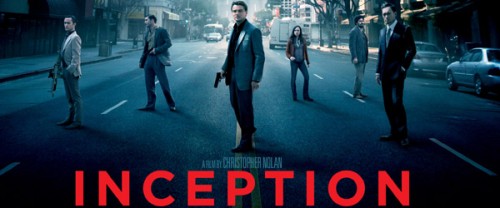Seven People in My #Transmedia Neighborhood
While Twitter has only become even more valuable since then as a professional networking tool, I still look to blogs for deeper engagement, and subscribe to feeds of blogs that offer real value.
My own Poetry, Fiction, Non-Fiction, and occasional commentary on all of the above.
While Twitter has only become even more valuable since then as a professional networking tool, I still look to blogs for deeper engagement, and subscribe to feeds of blogs that offer real value.
The plan for 2011, or at least part of it, will likely include continued defragging of my online presence and repositioning this site to once again be Command Central: All Things Guy -- writer, poet, marketer, publisher, optimist, malcontent -- no matter what new interests and passions the new year may bring my way.
Ask 5 people what they think transmedia is and you'll get 10 different answers, all with pretty sound reasoning, most likely based on the industry they work in.
And by independence, I mean making a sustainable living, not just self-publishing your book via Amazon or Lulu or Smashwords and declaring yourself an "indie".
The above tweet led to a fun interview over the at the Book View Cafe blog, “Weird and Wonderful: Digital Book World and Guy LeCharles Gonzalez,” with author Sue Lange asking me some interesting questions that really made me think hard to solidify some of my ideas about the “Future of Publishing” and what it means for authors and publishers.
There’s a lot of fluff and blather right now that makes it sound like eBooks are a magic bullet and simply uploading your book to Amazon makes you an independent author.
Most of that fluff and blather is coming from new intermediaries who take a smaller cut than traditional publishers, while putting your eBook on a virtual shelf where no one who doesn’t already know it exists will ever find it. And, of course, some of them will also upsell you on services to help you market your eBook and increase sales, for which they’ll get their cut.
In a lot of ways, it’s basically Vanity Publishing, in a shiny 2.0 coat.
I also explain a few things about Digital Book World, make the argument “that marketing is, first and foremost, a publisher’s responsibility,” and talk a bit about my own writing and how it has evolved over the years.

The weakness of “It’s all a dream” — why we hate that, why we feel cheated when narratively anything is revealed to be all a dream — is that you’ve just asked me to spend so much time and emotional capital investing in the stakes of this, and you’ve now swept it away with the most anti-narrative structuralism that doesn’t have anything to substitute in its place. It’s laughing at you for even taking it seriously. You don’t want to feel like a victim of the narrative, and I don’t think Christopher Nolan would do that.
Inception’s Dileep Rao Answers All Your Questions About Inception
Nuanced, brainy and thought-provoking, Christopher Nolan’s provocative sci-fi masterpiece (yeah, I said it) isn’t your typical formulaic summer blockbuster. Even its car chases, gun fights, explosions and special effects wizardry exist on a whole ‘nother level, raised by the sheer audacity of Nolan’s demanding that moviegoers sit still, pay close attention and think hard about what they’re seeing for 2.5 hours rather than be spoon-fed the usual red/blue pablum Hollywood spews out like clockwork from their “me, too” factories.
There’s no filler, no empty calories, no short cuts, no opportune pee breaks; Nolan packs something worthwhile into every second of screen time, and you blink at your own risk. It’s an action movie for intelligent adults who are tired of being treated like teenagers, and it will stick with you long after, whether you loved it or not.
It’s also a call-to-action of sorts for writers and publishers. Or could be, if they’re listening.
For transmedia novelists (and publishers) to retain creative control will require more than a repurposing of content. This might give a ‘taste’ of what transmedia can ‘do’, but for it to work on all levels it must be intrinsically built in and not bolted on.
–Alison Norrington, Transmedia Requires New Breed of Writers, Publishers
Ever since I attended the DIY Days Conference back in April, I’ve become obsessed with the idea of “transmedia” and what it means for both publishers and authors. I’ve even slowly been making it a point of focus over at Digital Book World, where I’ve run some insightful articles by some smart people who are also exploring the idea from a publishing perspective.
While writing an article for the September issue of Writer’s Digest about what writers should be thinking about in the future, transmedia kept popping up in a variety of ways, but the most compelling was the simple fact that it potentially changes the way some writers will go about getting published, especially novelists. Those focused only on getting a book deal (and haggling over eBook royalty percentages) will continue to pursue agents and editors, living a transactional existence while cranking out their 1-2 books/year and struggling with the concept of “platform”.
Savvier writers, though, will realize the full potential of the worlds they’re creating, and look beyond traditional publishing contracts for partnerships that allow them to fully exploit their creations.